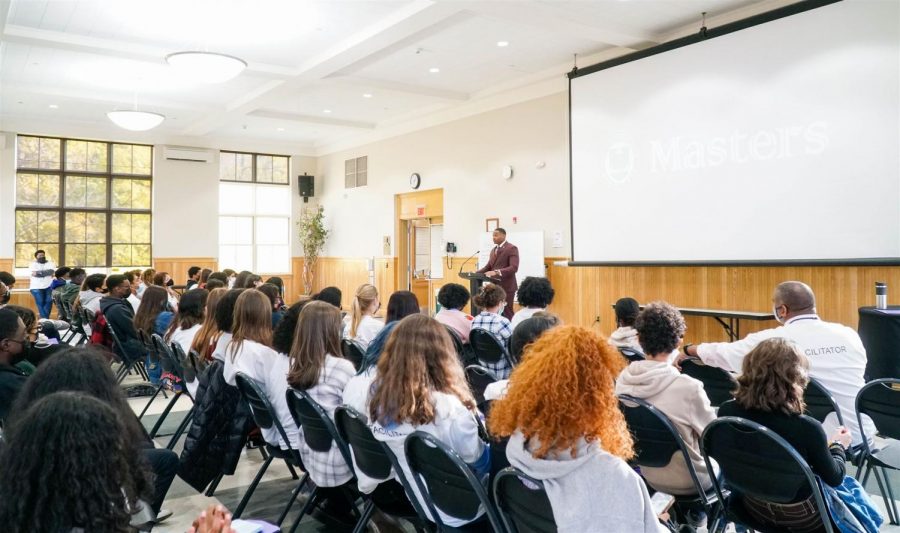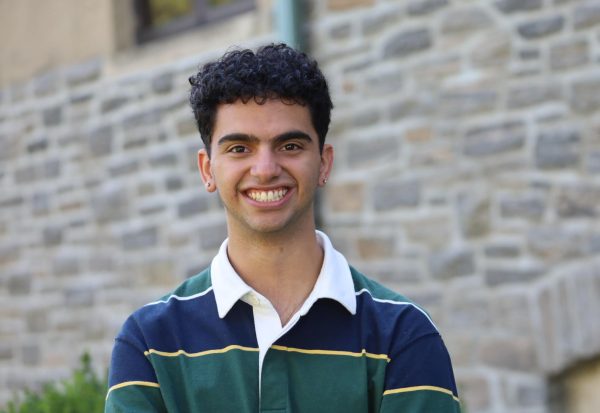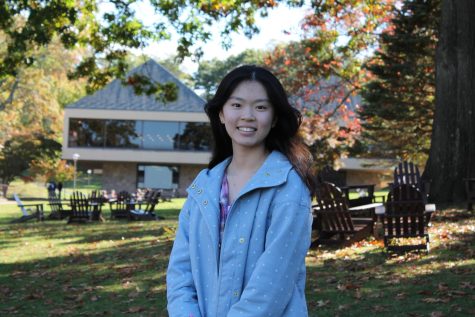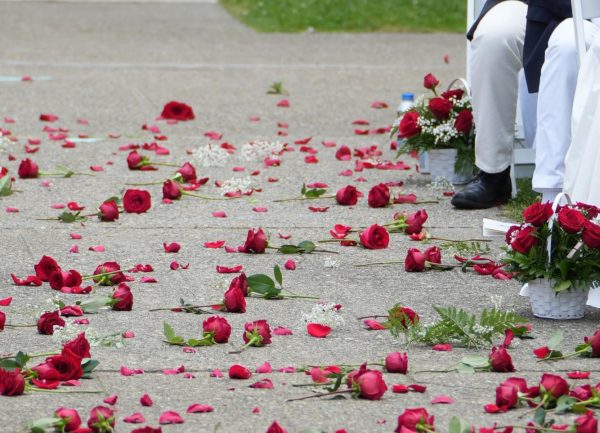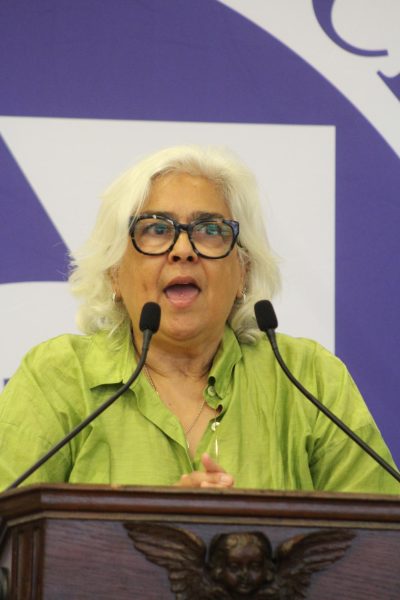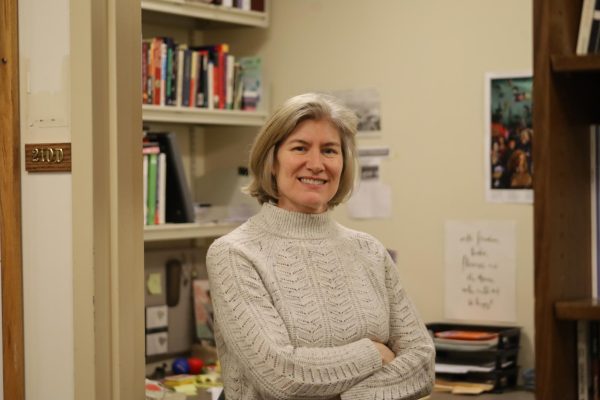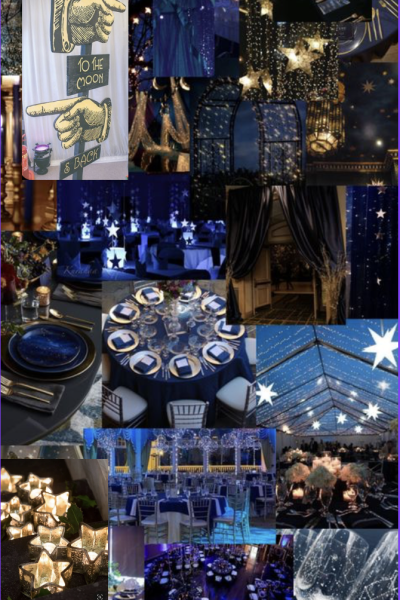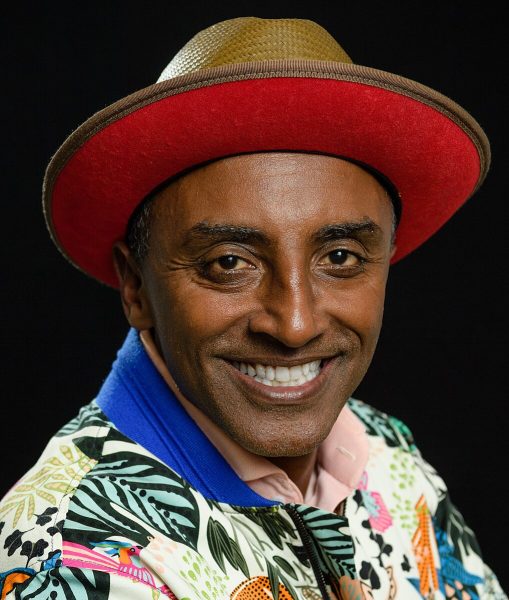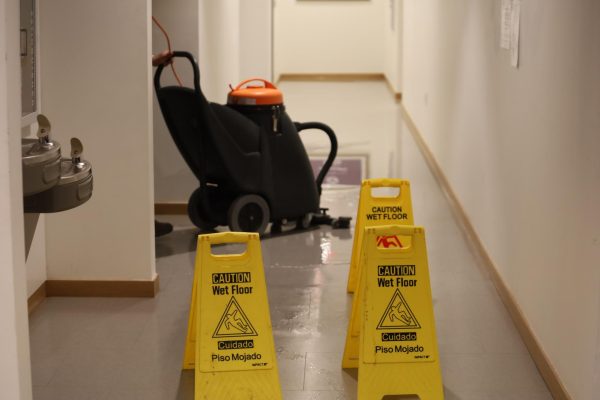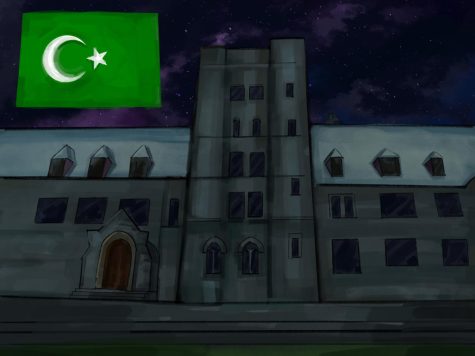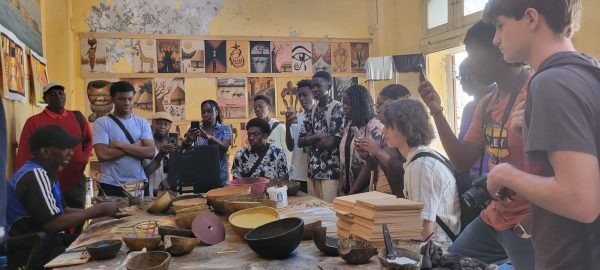Annual Saturday Summit on Social Justice Kindles Connection and Discussion
The students, faculty, and staff gather in Doc Wilson Hall to watch the keynote speaker, Rush the Mic.
December 2, 2021
The fifth annual Saturday Summit on Social Justice (SSSJ) was held at Masters this year on Nov. 20. From 9 a.m. to 6 p.m. Students participated in breakout sessions, an event with a keynote speaker, and lots of socializing. The conference, which was held online last year, is meant to be a day for high school students in the surrounding area to connect with and learn from each others’ perspectives on race, gender, ethnicity, intersectionality, and more. This year’s summit was able to gather students in person for conversations around social justice on campus.
Junior Karina Mangru said, “I felt like there was more freedom and connection this year. For example, instead of just having to choose one breakout group that I had to do for an hour, I got to sit in on multiple that I found I could relate to.”
Many of the participants expressed their gratitude for this event and opportunity. Sophomore Arjun Ratan said, “I really enjoyed the vibe that was there. It was a communal space and shared space to share our views, opinions, and experiences. which is something we aren’t always able to do in school”.
Fellow classmate Elijah Brooks highlighted how much he enjoyed the conference, and, more importantly, how essential he believes it is for everyone.
“Even if you are not about social justice you should still do it because you can share your experiences, somebody can learn from you, you can learn from somebody else. It is just an important experience you should have under your belt,” he said.
Mangru echoed Brooks’ sentiment.
She said, “Having other schools there showed how we are all different and how we can teach each other based on the programs that we have.”
The event consisted of 12 numbers of small sessions based on specific topics. Junior Amaris Asiedu helped to facilitate two sessions: BIPOC representation and positive body image in the media. She said the diversity of participants and the conversations they sparked helped to enlighten her in seeing both how far Masters has come and the journey that still lies ahead.
She said, “We acknowledged that the students are really the ones who have the power to change the situation. We can make many lists, but, the truth is, nothing will change if we don’t do them.”



